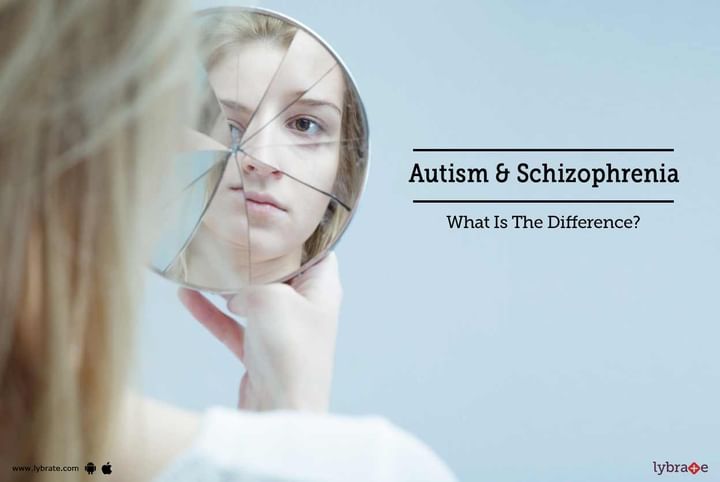Autism & Schizophrenia - What Is The Difference?
Both schizophrenia and autism are considered to be neurological disorders resulting from atypical neural development, occurring due to a variety of causes. Both these disorders have a genetic predisposition that may be due to environmental factors. However, there are a few basic differences between the two disease conditions.
Autism is also known as Autism Spectrum Disorder (ASD), is a neurodevelopmental disorder characterized by a spectrum of abnormal behaviour. They include persistent deficits in social communication and interaction, along with restricted and repetitive patterns of behaviour, interests or activities.
Signs of autism in babies
- By 6 months - No social smiles or other warm, joyful expressions; limited to no eye contact
- By 9 months - No sharing of vocal sounds
- By 12 months - No babbling or use of gestures to communicate; not responding to one’s name when called
- By 16 months - No use of words
- By 24 months - No meaningful or two-word phrases
Signs of autism at any age
- Avoids eye contact and wants to be alone
- Finds it difficult to understand other people’s feelings
- Speaks very less or has delayed language development
- Echolalia - Repeats words or phrases
- Cannot accept change in routine or surroundings
- Performs repetitive behaviours like flapping or rocking
- Has restricted interests and hobbies
- Reacts unusually intense to sounds, smells, tastes, lights, colours etc.
Schizophrenia
Schizophrenia is a neuropsychiatric disorder that begins during late adolescence and early adulthood. It is characterized by delusions, hallucinations, disorganized speech and behavioural changes that cause social and occupational dysfunctions.
Signs of Schizophrenia
- The symptoms of schizophrenia are usually observed between ages 16 and 30, such as e.g. delusions, hallucinations, thought disorders, movement disorders etc.
- Delusions are false beliefs of the patient that may take many forms like delusions of persecution or grandeur. You may feel somebody is controlling you or may think you have extraordinary powers and abilities.
- Hallucinations are when the patient hears voices more than seeing, feeling, tasting or smelling random things, which are not actually there.
- Thought disorders are when the person jumps from one subject to another for no logical reason.
- Some negative symptoms i.e. these are symptoms which are normally present in a healthy individual, but are absent in a schizophrenic patient. E.g. absence of facial expressions, lack of motivation etc.
- Cognitive symptoms affect the individual’s thought process. They can be positive or negative based on their expression. E.g. poor ‘executive functioning’ which deals with the ability to understand information and make decisions using them, finding it difficult to focus etc.
- Although both Autsim spectrum disorder and schizophrenia are interlinked in their causes and neurological background, the symptoms for each disorder are different.
In case you have a concern or query you can always consult an expert & get answers to your questions!



+1.svg)
